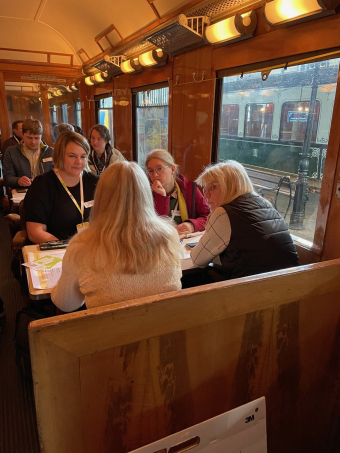Published 5 September 2024
Established in partnership with ISSOTL’s Teaching & Learning Inquiry (TLI) journal, UNSW’s new Peer Reviewer of Journals Mentoring Program is building academics’ SoTL skills.
Peer review is one of the foundation stones of academia: It holds researchers accountable and places their work within a centuries-old context of inquiry that allows researchers to build on the work of those who have preceded them, and it brings reviewers into a fuller and richer participation in academic life. However, the skills to review fairly and comprehensively are seldom explicitly taught, leaving reviewers to puzzle them out on their own, and researchers unclear on just how their research has been evaluated. This is particularly true for the Scholarship of Teaching and Learning (SoTL), a cross-disciplinary research field in which few researchers start out with specific expertise.
In 2022, in response to this need, the University of NSW (UNSW Sydney) adopted a proactive approach to developing staff capability in reviewing SoTL research in the form of a pilot Peer Reviewer of Journals Mentoring Program. The program, designed and led by Associate Professor Karin Watson, Director, Educational Excellence, engaged education-focussed academics in learning about the submission, review, and publication of articles in SoTL journals. Moreover, the program, run in partnership with the journal Teaching and Learning Inquiry, which is published by the International Society for the Scholarship of Teaching and Learning (ISSOTL), aimed to support participants in broadening their perspectives to move from a specific disciplinary context to SoTL’s more multidisciplinary and diverse approach. Once participants had gone through the program’s two workshops, which taught key reviewing skills, they moved into a new phase of being mentored in small teams by experienced staff to collaboratively review real journal manuscripts.
“Academics are very comfortable with research and peer review of research in their own discipline, but find it difficult to make the switch to SoTL,” says A/Prof. Watson.
“They have a very keen interest and desire to engage with SoTL, but they’re not sure how to get started. With this model, they engage in a small, inclusive and safe environment with academics from other disciplines, and are able to observe, shadow, and then practice becoming a peer reviewer.”
She adds, “They see the manuscript in its ‘raw’ stage, so they can see some of the common mistakes – they can see that it’s not perfect. This gives them confidence to try writing SoTL research for themselves.”
George Mason University (US) Professor and editor of Teaching and Learning Inquiry Kelly Schrum was a critical early collaborator in the development of the program. “I assigned Karin an article [to review] and she worked with a group of faculty to review it collectively. She provided training and facilitated the conversation. The review was incredibly thoughtful and insightful. And I think it worked really well for Karin and the community as well – giving them an authentic task with value to the field (and the journal)."
Schrum adds, "Learning how to review SoTL research is an excellent way to gain confidence and see what is possible. It can serve as a stepping stone to doing your own SoTL research.”
Stacey Mottershaw, Associate Professor (Teaching & Scholarship), University of Leeds (UK), found out about the program during the 2023 ISSOTL conference, at which A/Prof. Watson and her colleagues “delivered a fantastic workshop on the program”. She is now working on bringing it to the University of Leeds.
She says, “For me, this program really hits the sweet spot in terms of helping education-focussed academics to build their competence and confidence with journal reviewing, whilst also enhancing collaboration between like-minded colleagues. I only wish there had been something like this when I first started reviewing!”
A/Prof. Watson is also working on bringing the program to other universities, with a number of overseas institutions engaging with the program to adapt it to their own contexts. “I've been pleasantly surprised at the extent of the interest from other institutions, which underscores the need for such a program. We are also thinking of expanding to two models – one where we invite individuals from other universities into our UNSW program, and/or other institutions running their own separate, self-contained programs. We’re also interested in developing a road-show type format where we do a 90-minute workshop to get people started or interested, and a toolkit that we can share with other universities.”
A/Prof. Watson looks forward to sharing this program across disciplines and institutions.
“SoTL has tremendous value for all academics, whether combined-track or education-focussed. This mentor program brings people from all discipline areas together to build confidence and capability, and provides opportunities for them to share their insights and experiences for the benefit of all.”
This article is written by Laura E. Goodin.

